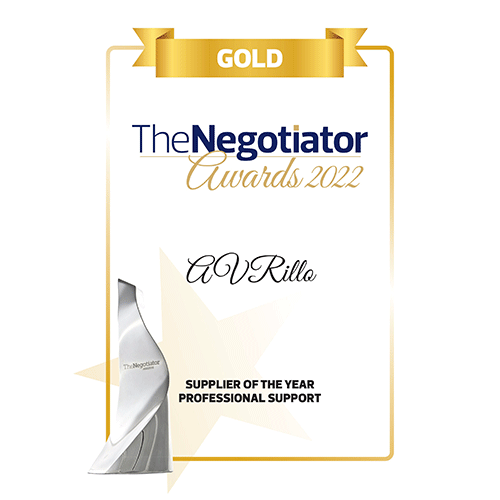

and start saving money now
and start saving money now
Get a FREE Conveyancing Quote
Award-Winning Conveyancing Lawyer in Lichfield - AVRillo Conveyancers
Conveyancing is the legal process of transferring land, property, or other assets from one person to another. If you own property and want to sell it, you will need conveyancing services in Lichfield to assist you.
Here are some of the benefits of working with AVRillo conveyancing services in Litchfield.
 Our Team is Well Conversant with the Ins and Outs of the processOur team understands how important it is to do this process right. They are committed to providing you with the best conveyancing service in Lichfield.
Our Team is Well Conversant with the Ins and Outs of the processOur team understands how important it is to do this process right. They are committed to providing you with the best conveyancing service in Lichfield.
We have perfected the process with years of experience under our belt working on Conveyancing cases just like yours.
We know how important your case is to you and we make sure that it gets our full attention at all times. From start to finish, we are there for you to guide and assist you every step of the way. Our Conveyancing Fees in Litchfield Are Competitively PricedWe offer some of the most competitive rates for Lichfield conveyancing services.
Our Conveyancing Fees in Litchfield Are Competitively PricedWe offer some of the most competitive rates for Lichfield conveyancing services.
We believe everyone should enjoy the benefits of expert conveyancing services in Litchfield. A free no-obligation quote is offered to customers looking for conveyancing lawyers in Lichfield. We Work with a Wide Range of ClientsOur pride comes from working with people from all walks of life and businesses, both big and small. You can be sure that your conveyancing case will receive the utmost attention and care from our team. The aim is to always provide each client with a personal one-on-one service tailored specifically for them.
We Work with a Wide Range of ClientsOur pride comes from working with people from all walks of life and businesses, both big and small. You can be sure that your conveyancing case will receive the utmost attention and care from our team. The aim is to always provide each client with a personal one-on-one service tailored specifically for them. Our Team is Well Trained and ExperiencedOur staff is committed to providing you with the best advice possible for your conveyancing case in Litchfield. We will do everything they can to make sure that it goes off without a hitch, all the while keeping you informed every step of the way. We are committed to providing you with legal expertise and guidance to deal with your case most effectively.
Our Team is Well Trained and ExperiencedOur staff is committed to providing you with the best advice possible for your conveyancing case in Litchfield. We will do everything they can to make sure that it goes off without a hitch, all the while keeping you informed every step of the way. We are committed to providing you with legal expertise and guidance to deal with your case most effectively.
Recent Reviews
Conveyancing in Lichfield: FAQs
What is Conveyancing?
Conveyancing is the legal process of transferring property ownership from one person to another. It happens through a sale, exchange, gift, or on death. It is possible to do it yourself, but we highly recommend hiring professionals for your conveyancing case in Litchfield.
Can I Do Conveyancing Myself?
You are legally allowed to do your conveyancing. However, if you aren’t experienced with this process or don’t understand it fully, then we recommend hiring professionals for your conveyancing case in Litchfield.
What Are the Benefits of Hiring a Conveyancer?
Hiring professionals for your conveyancing case in Litchfield can help you save time and money. Most importantly, hiring experts to do it on your behalf ensures that everything is done correctly from start to finish with little room for error.
How Can an Estate Agent Help During the Transactions?
Estate Agents play a big part in the conveyancing process. They can help you find properties, provide market information and advice on sales strategies to get the best price possible for your property. They can also help you get a mortgage pre-approval, the first step towards buying your dream home.
Is it Possible to Exchange and Complete Contracts on the Same Day?
Yes! It is possible to finalize the transaction and exchange contracts on the same day. A few factors need to be considered, such as if both parties have their funds ready and have already applied for any necessary finance.
What Can I Do to Avoid Delays?
The best way to avoid delays is to speak with your conveyancer about any contingencies that may arise. These are issues, such as the property not appraising at the agreed sale price, which could lead you to renegotiate on price and potentially lose out on a property.
Some of the other issues could be your mortgage pre-approval not going through, a failed building inspection, or you being unable to secure finance on the property. All these contingencies should be discussed with your conveyancer at length before proceeding with any purchase.
What are Cleared Funds?
Cleared funds are the money that is available to you for your new home purchase. It means that it has been fully verified and cleared by all concerned parties, including your bank or mortgage lender.
If you are the buyer, your conveyancer will ask for a bank statement to prove that you have at least 12 weeks’ worth of mortgage repayments available in cleared funds.
For sellers, you need to show how much money from the sale is going towards the purchase and include this information on an exchange of contracts form.
What Does Stamp Duty Cover?
Stamp duty covers the tax payable on legal documents relating to purchasing property in Litchfield. Each state has its own rules and regulations regarding stamp duty, so it’s essential to speak with your conveyancer about any concerns you have.
What is a Section 32 Report?
The buyer requires a Section 32 report before contracts can be exchanged. It provides information on the property, such as who its registered owner is, what mortgages are currently against the property, and any nearby land or development that may affect it and or development nearby that may affect the property’s future value.
Why Hire An Established Conveyancing Firm?
A large part of why you should hire an established firm to handle your conveyancing case in Litchfield is because they will have extensive knowledge and expertise in navigating through the process.
When should I arrange the buildings insurance for my new home?
You should arrange the building’s insurance as soon as the exchange of contracts has been completed. With this, you are sure that your new home is covered if any damages or emergencies arise within a specific time frame. Typically, you only need the building insurance for a few weeks until you can take out your policy with your chosen firm.
What is a Contract for Sale and Purchase?
The contract for sale and purchase is the first legal document between a seller and a buyer on a property sale. It sets out all critical terms of the agreement, such as how much money is being paid, what documents are needed by each party, and the process involved with completing the deal.
It is vital to have a conveyancer on hand who can help you through the contract negotiations stage of your sale. A conveyancer will ensure you are protected at every step of the process to avoid any future issues or misunderstandings
How Does Equity Work?
Equity is the difference between the market value and how much money still needs to be paid by the borrower to own it. If you are a buyer, you will be expected to contribute 5% of the property’s cost upfront.
If you are the seller, your conveyancer will calculate how much money needs to be paid by the purchaser for you to own it completely. Any amount of money above this is your equity for buyers and sellers.
How Long Does Exchange of Contracts Take?
The time it takes to exchange contracts can vary depending on the specific situation of your sale, but in most cases, it takes about one week. It should include all the time you need and the seller to sign the paperwork.
Once the contract has been signed and exchanged by both parties, your conveyancer will need a little more time to finalize everything, as banks can take up to 10 working days to process mortgage payments.
How Long Does Settlement Take?
Settlement is the day on which you legally own the property and have paid all of your money to the seller, after which you will be given the keys to your new home.
Settlement usually takes place around 1-2 weeks after exchanging contracts. Stamp duty is paid on this day, along with any other costs that have been incurred since the exchange of contracts.
How Long Does Completion Take?
Completion refers to the last step in purchasing a property. The buyer finalizes everything with their conveyancer and banks to ensure that everything has been correctly transferred into their name. It is the most critical day in the conveyancing process because it marks the point at which you can truly call your home yours.
Why do I Need an Auction Conveyancer?
Auction conveyancing refers to the process of purchasing an auctioned property. If you are bidding for your preferred home at auction, you must have a dedicated auction conveyancer on hand to look after everything from start to finish. An auction conveyancer will be able to provide thorough legal advice throughout the entire process, ensuring that you are protected at every step of the sale.
What is a Conveyancer?
A Conveyancer specializes in legal processes involving real estate transactions, such as buying or selling property. They can also advise on what steps to take if there are any disputes over the process.
A Conveyancer will review all the legal documents and paperwork associated with your sale before it goes to settlement, protecting you at every step of the process.
A Conveyancer will also be able to provide comprehensive advice on stamp duty and conveyancing costs, as well as offer detailed information about what to expect during the buying or selling process.
As a Seller, Do I Need to Maintain Buildings Insurance Until Completion?
Unless otherwise agreed, you should not cancel your current buildings insurance until the property has officially changed hands. You must maintain your current policy until settlement has occurred and it is no longer legally yours.
If you cancel your policy before this point, this may leave the new owners without cover if anything happens to the home between the exchange of contracts and settlement.
Once the new owners have officially taken over, you are free to cancel your policy at any time if you wish.
What is an Energy Performance Certificate?
An Energy Performance Certificate (EPC), also known as an energy report, is a mandatory document required by all properties for sale in Lichfield must-have. It provides data on how much energy a building uses to provide heating and hot water, indicated in an A-G rating.
The higher the A-G score, the more efficient the building is in energy usage, and developers must upgrade all A-G ratings to at least E.
All properties must have an EPC attached before taking it onto the market. The seller should provide accurate information on heating and hot water systems, insulation; thermal comfort; air tightness; ventilation; lighting, and other energy efficiency aspects of the property.
How Does a Conveyancing Chain Work?
A conveyancing chain refers to transferring ownership of a property between parties. The process begins with the current owner, who must provide their solicitor (or conveyance maker) with all relevant documents before the sale proceeds.
The lawyer will then conduct an initial search to ensure no problems or disputes regarding the property that may hinder the sale. The buyer will then instruct their lawyer to provide a copy of all necessary documentation to the seller’s conveyancer.
The process is repeated until both sides have received copies of everything needed for the exchange, at which point a settlement date can be agreed upon. Conveyancing law dictates that all property sales must be completed within a 28 day period, which gives both parties enough time to sort out any outstanding issues that may have been overlooked.
Can Someone Pull Out?
Yes, but only if they have a good reason to do so. In most cases of chain breakage, it is due to something that either the buyer or seller has failed to disclose, such as poor credit history, failure to provide information on previous convictions, or outstanding debt that has not been repaid.
If either party finds out about another person in the chain who they feel is too high risk, they may break the sale. Disputes will also arise if one of the parties refuses to pay their agreed share of the fees until a settlement has occurred or if any irregularities with the property affect its value.
How Does Joint Ownership Work?
Joint ownership refers to when two or more people are co-owners of a particular property, whether freehold or leasehold. The same rights and responsibilities apply to affect an individual owner, but necessary formalities should be adhered to.
- 24 / 7 Online Tracking
- Call Surgery
- Online Payment
- Quote App
- Our Team & Careers
- Conveyancing Today
- Get in touch
- Cheap conveyancing solicitors
- Online conveyancing quote
- Find a conveyancing solicitor
- Solicitors for house buying
- Residential Conveyancing
- Property Conveyancing
- Solicitor Costs For Buying a House
- House Conveyancing
- Conveyancing Guide
- Conveyancing Solicitor
- Residential Solicitors
- Conveyancing




















